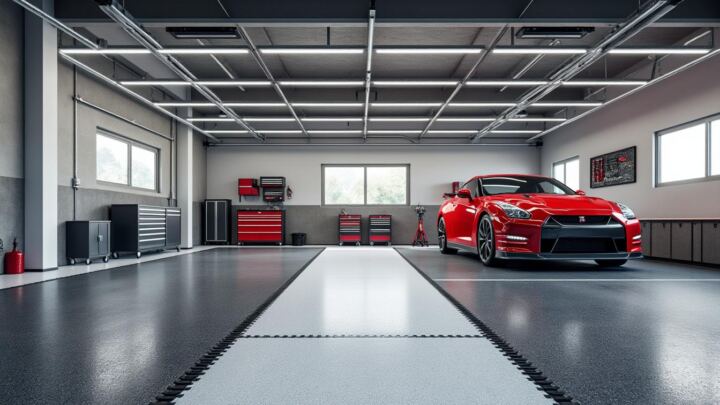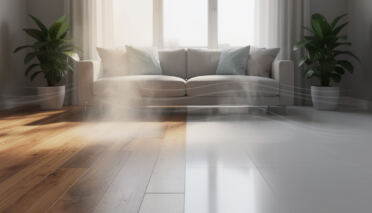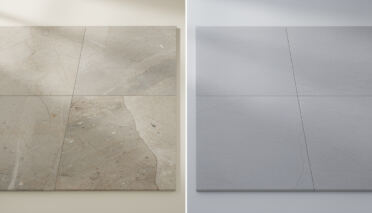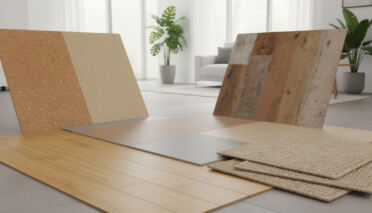Choosing the right flooring for your garage is more than just an aesthetic decision; it has practical implications that can affect maintenance, safety, and how you utilize the space. In 2025, homeowners are increasingly focused on merging function with style, leading to a variety of options that cater to differing needs and budgets. Whether your garage is a space for parking, a workshop, or even a gym, the flooring you choose can dramatically alter its usability and look. In exploring this topic, we dive into the most popular flooring types that are making waves this year. From eco-friendly options to high-end luxury materials, the choices are abundant and cater to a multitude of preferences.
With continuously evolving trends in home design, garage flooring has also come a long way from the standard dull concrete slab. Many homeowners now seek designs that enhance the overall aesthetics while also providing durability against spills, impacts, and heavy foot traffic. Such practicality is crucial, as garages often endure wear and tear from vehicle traffic, chemicals, and weather. As you shop for garage flooring, consider factors like durability, maintenance needs, aesthetics, and potential costs. Each flooring type brings its own set of pros and cons that must be carefully evaluated to find the perfect fit for your garage.
- 🛠️ Durability – Look for options that can withstand heavy traffic and spills.
- 🧼 Maintenance – Some floors require regular upkeep while others are low-maintenance.
- 🎨 Aesthetics – Choose a style that complements your home’s overall look.
- 💰 Cost – Prices can vary widely; setting a budget helps narrow down choices.
Understanding the Popular Types of Garage Flooring
Garage flooring comes in numerous materials and styles, giving homeowners ample opportunity to customize their space. Let’s explore some of the most popular options available, considering their practicality, longevity, and overall value. After all, a well-chosen flooring option can enhance not just functionality but also the visual appeal of your garage.
| Type of Flooring | Durability | Cost (per sq ft) | Best For |
|---|---|---|---|
| Epoxy Coating | Medium | $3–$12 | Custom designs & aesthetics |
| Polished Concrete | High | $2–$16 | Heavy vehicle traffic |
| Rubber Flooring | Medium | $3–$10 | Workout areas & workshops |
| Natural Stone | High | $6–$20 | Luxury & durability |
| Vinyl Flooring | Low | $2–$14 | Low-traffic garages |
Epoxy Coating and Floor Paint
When it comes to affordable options, epoxy garage floor coating takes the cake. Not only is it durable and resistant to chemicals, but it also allows homeowners to express their creativity through color and design choices. Epoxy coatings can be tailored to fit any style, from sleek minimalist to vibrant and playful. They can be combined with decorative flakes or patterns embedded within the coating for that extra aesthetic appeal.
Furthermore, epoxy flooring is highly resistant to damage from oil, transmissions fluids, and other chemical spills. It provides a seamless surface that makes cleaning a breeze. Just remember that while the initial costs are reasonable, expect some additional expenses for proper surface preparation, which is crucial for ensuring the longevity of the coating.
However, one drawback to consider is the long curing time. The waiting period can vary, but it’s generally advisable to stay off the floor for a minimum of a week to allow the coating to fully harden and bond with the concrete. Another consideration is that the surface can become slick when wet, which may not be ideal for families with children or pets.

Polished Concrete Flooring: A Strong Contender
For those prioritizing durability, polished concrete flooring stands out as a top candidate. It is created by grinding and polishing a concrete slab to achieve a smooth and shiny surface. This type of flooring can withstand significant wear and tear, making it perfect for garages that are frequently used for heavy vehicle traffic or as workspaces.
A major advantage of polished concrete is its low maintenance requirements. Unlike flooring materials that need frequent waxing or sealing, polished concrete only requires occasional cleaning. The shine also reflects light effectively, brightening the garage space considerably. Additionally, polished concrete is generally more affordable compared to high-end flooring options while still offering the classic and sophisticated look that many homeowners crave.
- ✨ Pro: Low maintenance and cost-effective.
- 💪 Con: Can crack if not properly installed or if the ground shifts.
- 💰 Pro: Suitable for eco-conscious individuals due to minimal added substances.
Rubber Flooring: Comfort Meets Functionality
If your garage doubles as a gym or workshop, rubber flooring might be the best option for you. Rubber can be found in various forms such as mats, rolls, and interlocking tiles, making it easy to install and customize. Not only does rubber flooring provide excellent traction, but it’s also durable and comfortable underfoot, ideal for standing for long periods.
Installation can be DIY-friendly, and it’s simple enough for most homeowners to handle. Rubber flooring also offers sound-dampening qualities, making it quieter in busy garages where tools and equipment can create noise.
Though rubber flooring has many pros, it does come with a higher price point compared to other budget options. Additionally, the design choices are limited when compared to other flooring types, which may be a deterrent for those aiming for a more visually striking look.

Natural Stone Flooring: Luxury Choice
For homeowners who want to indulge in luxury, natural stone flooring could be the ultimate choice. Not only does it provide a unique and beautiful appearance, but it is also highly durable. Options such as granite, marble, and slate can create an aesthetic that is hard to replicate with synthetic materials.
However, the price tag is a significant factor to consider. Stone flooring is one of the priciest options on the market, which may not be feasible for every budget. Furthermore, natural stone requires regular sealing to maintain its look and prevent stains, making it a higher maintenance choice compared to others mentioned.
- 💎 Pro: Unique appearance and highly durable.
- 💸 Con: Expensive and requires ongoing maintenance.
Vinyl Flooring: Budget-Friendly Option
If your garage sees less foot traffic and is primarily used for light storage, vinyl flooring can be an economical alternative. Its cost-efficiency gives homeowners a chance to spruce up their garage without breaking the bank. Available in numerous colors, styles, and patterns, vinyl is versatile and can fit into any aesthetic you may desire.
While vinyl is affordable, the trade-off is that it’s less durable compared to its counterparts. It’s more susceptible to tears and stains, making it less ideal for garages that frequently deal with vehicle maintenance or heavy equipment. However, the ease of installation and maintenance is appealing for many homeowners. It’s reasonably easy to clean, making it practical for those wanting ease of upkeep.
| Flooring Type | Average Cost | Maintenance Level |
|---|---|---|
| Epoxy | $3–$12 | Low |
| Polished Concrete | $2–$16 | Very low |
| Rubber | $3–$10 | Low |
| Natural Stone | $6–$20 | High |
| Vinyl | $2–$14 | Low |
What is the most durable flooring for a garage?
Polyurea is considered the most durable flooring for garages. It lasts longer and is almost twenty times stronger than epoxy.
What garage floor coating lasts the longest?
A polyaspartic floor coating is known to provide the longest-lasting protection for garage floors.
Is vinyl flooring suitable for garages?
Vinyl flooring works best for smaller garages with lower traffic but may not hold up well under heavy use.
Can I install garage flooring myself?
Many options, like interlocking rubber tiles and vinyl, are DIY-friendly, while others may require professional installation.
How do I maintain epoxy flooring?
Regular sweeping, quick stain removal, and periodic cleaning with a pH-neutral cleaner help maintain epoxy flooring.



